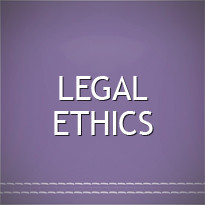G.R. No. 133250 – 451 Phil. 1 – 403 SCRA 1 – Legal Ethics – Judicial Ethics – Inhibition; Supreme Court Justice
In July 2002, Amari Coastal Bay Development Corporation lost a case (PEA-Amari Scandal) before the Supreme Court involving certain reclaimed lands. Upon receipt of the adverse decision, Amari filed a Motion for Inhibition asking the ponente of said case, Justice Antonio Carpio, to inhibit from the case on the ground that before Justice Carpio was appointed to the Supreme Court, he wrote a column in the Manila Times newspaper where he questioned the legality of the agreement between the Public Estates Authority and Amari regarding the said reclaimed property (PEA-Amari deal). Amari insists that Justice Carpio already prejudged the issue as his bias and prejudice were already apparent. Amari also prays for a re-deliberation after Justice Carpio inhibits.
ISSUE: Whether or not Justice Carpio should inhibit from the case by reason of the said Manila Times column.
HELD: No. In the first place, the decision was already promulgated when Amari filed its motion requesting Justice Carpio to inhibit. The rule is that a motion to inhibit must be denied if filed after a member of the Court had already given an opinion on the merits of the case. Reason: a litigant cannot be permitted to speculate upon the action of the Court (only to) raise an objection of this sort after a decision has been rendered.
Second, judges and justices are not disqualified from participating in a case just because they have written legal articles on the law involved in the case.
Third, looking at Justice Carpio’s Manila Times article, his article questioned the legality of the PEA Amari deal on the basis of the lack of public bidding. In this particular case before the Supreme Court, the issue of the absence of public bidding was not raised by any of the parties involved hence, Justice Carpio’s write up had nothing to do with the very merits of the case.


